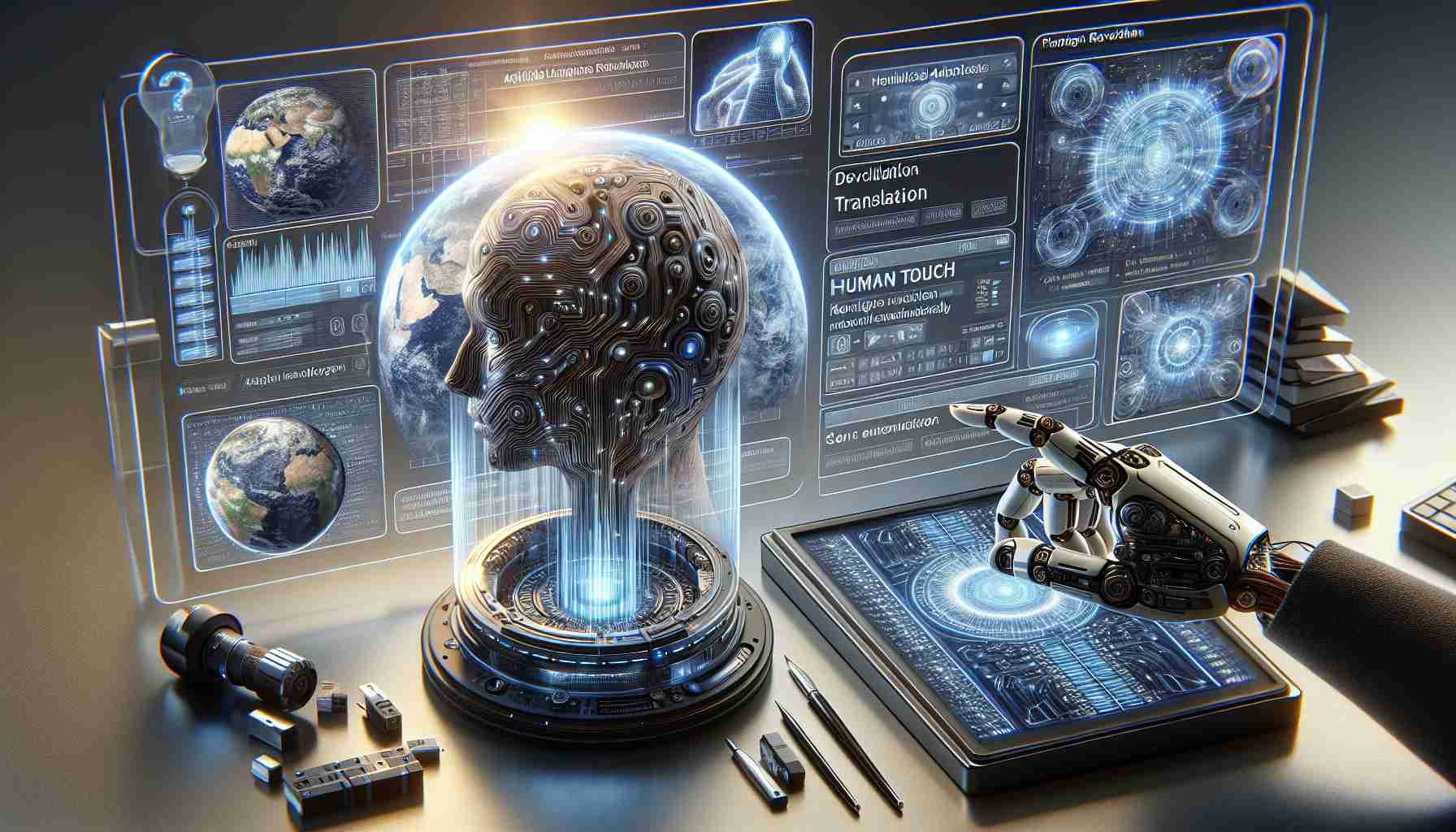The publishing world is abuzz as Veen Bosch & Keuning (VBK), a major Dutch publisher recently acquired by Simon & Schuster, announced a foray into artificial intelligence for translating select English-language books. This revelation sparked swift reactions from industry bodies concerned about AI’s encroachment on translation jobs.
VBK’s initiative focuses on a handful of commercial fiction titles. These are books with limited English market potential, where rights have not been secured and are unlikely to be sold, explained Vanessa van Hofwegen, VBK’s commercial director. Emphasizing the cautious nature of this trial, she assured that no literary works would be involved.
Despite AI’s involvement, human engagement remains constant in the process, and authors’ permissions are paramount. A company spokesperson clarified, “AI supports translation, but human oversight ensures accuracy, with each book passing through an editing phase.”
The concern arose from translated works potentially losing their nuance and cultural depth, a sentiment reinforced by PEN America. The organization argues that AI cannot replicate the intricate skills of human translators.
Ian Giles of the Society of Authors’ Translators Association expressed alarm, noting surveys indicating significant job losses in translation due to AI. This echoed conversations at the London Book Fair, where experts voiced apprehensions over AI’s impact on translation quality.
Meanwhile, Simon & Schuster CEO Jonathan Karp emphasized the vibrancy and progressive spirit of VBK, pointing out innovation in audiobook development as an example. Karp highlighted the importance of collaboration with authors, suggesting that advancement in AI could present exciting opportunities for all parties involved in publishing.
AI Takes on Translation: Revolutionizing or Risking the Future of Language?
The publishing industry is currently witnessing a significant shift with the introduction of artificial intelligence in translation processes. As Veen Bosch & Keuning (VBK), a prominent Dutch publisher, recently unveiled their experimental use of AI to translate select English-language commercial fiction titles, the move has sparked widespread debate. This development not only underscores the increasing intersection of technology and humanities but also propels forward discussions on the implications for future technologies and human roles.
The Impact of AI on Translation and Beyond
The integration of AI in translation presents an intriguing crossroad for both technological advancements and the development of humanity. AI’s ability to handle large volumes of text more rapidly than humans suggests a future where literature can be more accessible to diverse linguistic audiences, potentially enriching cultural exchanges on a global scale. However, the juxtaposition of translation accuracy and cultural sensitivity remains a key point of contention.
While AI can streamline the translation process, many experts argue it may lead to a loss of cultural nuance—an aspect typically woven intuitively by human translators. PEN America, a notable advocate for the literary community, contends that AI fails to capture the subtle intricacies embedded in human expression. This raises the question: Can AI ever truly replace human translators without compromising the quality and depth of translated works?
Advantages and Concerns Surrounding AI Translation
Among the advantages of AI in translation is its potential to drastically reduce time and costs associated with traditional human-driven translation methods. Furthermore, AI can expose readers to previously inaccessible works, breaking down language barriers that have historically limited multicultural literacy.
However, the disadvantages are equally pressing. A primary concern is the potential loss of employment for human translators, as voiced by Ian Giles from the Society of Authors’ Translators Association. The industry has witnessed ominous forecasts of job reductions owing to AI’s efficiency—a sentiment echoed during dialogues at the London Book Fair.
Moreover, there are unresolved controversies surrounding AI’s ability to adapt and evolve with human languages, which are dynamic and complex. The current reliance on human oversight in AI translation projects highlights the limitations of technology when dealing with the nuanced craft of language translation.
The Future of AI in Publishing
Despite these concerns, there is optimism about the potential advantages AI could bring to the publishing sector. Simon & Schuster’s CEO, Jonathan Karp, acknowledges that AI could herald exciting opportunities for authors and publishers willing to embrace it. By focusing on collaboration, the industry can potentially harness AI innovation to enhance, rather than replace, the invaluable work of human translators.
So, is the future of translation destined to be dominated by AI? Or, will it emerge as a synergistic tool to be used alongside human ingenuity? The ultimate success in AI translation may lie in finding a balance that respects and incorporates human expertise while leveraging technology to expand linguistic horizons.
For further exploration of the intersecting worlds of technology and publishing, visit PEN America and Simon & Schuster.
